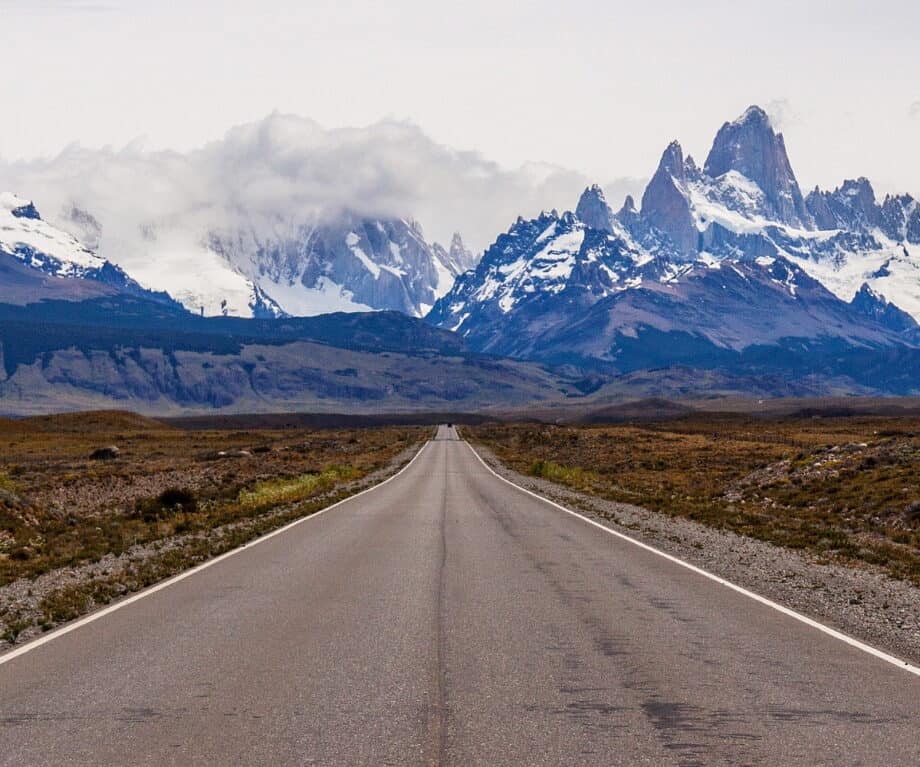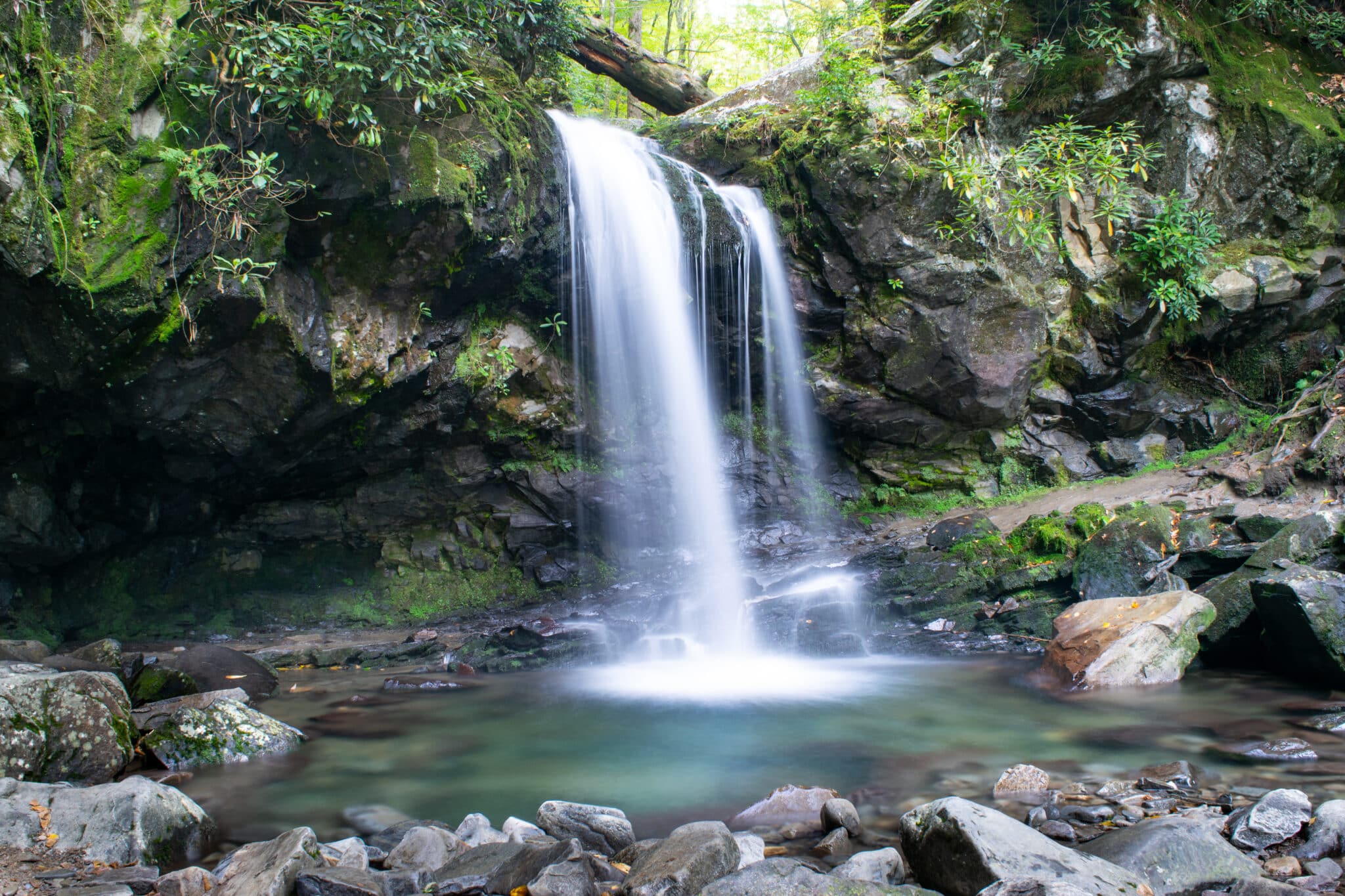Patagonia is so much more than the retailer selling puff jackets and down vests. Blanketing the southern tip of South America, the vast region of Patagonia covers both southern Argentina and southern Chile, encompassing a massive expanse of untouched wilderness of extraordinary beauty packed with outdoor adventure.
With endless hiking routes for everyone (from expert climbers to leisurely walkers), jaw-dropping glaciers, mineral-rich waterfalls, and high-altitude lagoons, Patagonia offers unparalleled adventure for nature enthusiasts, adrenaline junkies, and curious travelers alike.
Here, we’ve selected only six of what we and our clients have found to be Patagonia’s best destinations for experiencing the region’s untamed beauty and connecting with its wild-hearted spirit.?
Valdés Peninsula, Argentina: A stunning marine-life safari destination
Offering some of the most spectacular wildlife-watching opportunities in Patagonia – if not anywhere else in South America – the Valdés Peninsula astounds visitors with its fascinating marine wildlife.

It’s easy to see why the Valdés Peninsula has been awarded UNESCO World Heritage Site ranking, given the overwhelming populations of marine animals that congregate here on the northern edge of Argentine Patagonia. Protruding from the country’s mainland on the Atlantic coast, the Valdés Peninsula nature reserve shelters land and marine wildlife of all types. This turns a trip here into an unforgettable safari, with colonies of sea lions, Magellanic penguins, Elephant seals, guanacos, and maras to get up close to.
But above all, it’s a destination where you can witness spectacular Southern Right Whales, which populate the seas here from June to December for their breeding season. Nothing quite prepares you for the sheer awe of seeing these imposing creatures of the sea swimming right in front of you, and that’s precisely what you’ll experience on a whale-watching tour on the Valdés Peninsula. Take a boat trip from Golfo Nuevo Bay to get up really close to these titans, and if you’re lucky you might see one or two of them breach the waters; a once-in-a-lifetime sight to behold.

The penguins of Punta Tombo
Not terribly far from the Valdés Peninsula is Punta Tombo, the site of a huge colony of Magellan Penguins that’s well worth a visit. As its population can exceed half a million of these birds during their peak season, Punta Tombo can boast of being one of the greatest penguin residencies on the continent. Take a side trip to Punta Tombo to walk in amidst them and watch how they go about their daily business: from feeding their young to going for an ocean swim.?
Bariloche: The ‘Switzerland of Patagonia’
Often dubbed the “Switzerland of Argentina,” thanks to its Swiss-inspired architecture and mountainside location, the town of San Carlos de Bariloche is the northern gateway to Patagonia. Situated on the northern edge of Argentine Patagonia, Bariloche is a popular hub for nature lovers who want to delve into the hiking haven that surrounds the town.

In this land of meandering rivers, meadows carpeted in wildflowers, and waters as blue as sapphires, the star of the show is Nahuel Huapi National Park. The reserve shares its name with the lake alongside which Bariloche nestles and is also home to a host of natural gems that make visits here both inspiring and rejuvenating. Forests cling to the slopes of the park’s mountains, glaciers are interspersed with craggy peaks, and a string of volcanoes add a touch of drama to the utterly picturesque scene. Nahuel Huapi is an exquisite example of nature at its best.
Being situated at the doorstep of this stunning park, Bariloche is positioned in a strategic location that makes it a good base as a jumping-off point for excursions deeper into Patagonia as well as for exploring the local region.
In summer, the Bariloche area is a paradise for hikers and climbers, which is why avid adventurers arrive in Bariloche to hike, horse ride, kayak, and even golf under vivid blue skies. Winter, however, brings with it opportunities for skiing and snowboarding outside the city, thanks to snow-blanketed slopes at the largest ski resort in South America: Cerro Catedral.
The resort offers slopes for every ability, from gentle beginner runs to serious off-piste routes. The complex is surrounded by postcard-worthy views, and after a day spent on the slopes, Bariloche has a vibrant après-ski scene to enjoy. Think cozy wooden cabins, mugs of steaming hot chocolate, and bubbling fondue – you wouldn’t be wrong for mistaking it for the Alps.

The alpine feel of Bariloche is enhanced by countless stores selling chocolate; only adding to the sense that the town has been influenced by European mountain towns. Though it’s certainly a bustling place, there is a smattering of luxury hideaways outside of town that are so sumptuous you might find it hard to resist the hypnotic call of the pure beauty of this dazzling corner of Patagonia.?
El Chaltén: The trekking capital of Argentine Patagonia
Known for its abundance of sweeping panoramic viewpoints, varied hikes, and high-altitude lagoons, the tiny Argentine town of El Chaltén invites travelers to some of the best outdoor activities in Patagonia.

El Chaltén is a place that epitomizes the untamed beauty of Patagonia. Sitting firmly in the shadow of Mount Fitz Roy (whose craggy peaks soar just beyond the town’s limits and are visible from everywhere) El Chaltén is very much the gateway to area hiking hotspots and the wider region.
This small town has a population of just 1,627 people and exudes a laid-back and adventurous atmosphere. The streets are simple and unassuming, lined with outdoor gear shops, eateries, and accommodations that range from simple to rustic chic. The understated architecture blends harmoniously with the natural surroundings, adding to the town’s back-country charm.
The beauty of El Chaltén lies in its simple dedication to outdoor exploration, hiking, and biking. Though the town as good as closes down completely during the winter months, it attracts thousands of adventurous hikers during the summer.
Whether you’re tackling the exposed and challenging trek to the glacial Laguna de Los Tres, ambling through southern beech forest in the private Los Huemules Reserve in the hopes of spotting a huemul (an endangered species of deer), or just walking to the waterfall at the north end of town, there are numerous day walk options to suit all abilities and interests.

Whether an expert climber and casual hiker, or anything in between, the trails and treks around El Chaltén will have something for you, guided or otherwise. A variety of terrain, from the verdant grasslands of the Fitz Roy valley to a baron, rocky expanses in the Hielos Sur ice fields, precipices, and steep mountain inclines abound for what is an area enjoyed by those of all ages, levels of physical fitness and daring!
A true highlight of the life to be found in and around El Chaltén is — believe it or not — the moment when each day of activity comes to an end, and you reward yourself with a well-earned meal and a craft beer at one of the town’s numerous (and sophisticated) dining options! Having spent the previous hours conquering dizzy heights or rambling treks, El Chaltén’s cozy restaurants and fun bars are the perfect place to relax and unwind, resting weary legs after a day exploring this famous landscape.?
Torres Del Paine National Park: The Patagonian gem
Chile’s vast Torres del Paine National Park has built up a legendary status among travelers. With its impossibly blue lakes, towering snow-dusted mountains, pine forests, and a surprising amount of wildlife, the park is – unquestionably – one of the most scenic parts of Patagonia. Among the many outdoor activities in Torres del Paine are endless hiking routes for everyone, from expert climbers to leisurely walkers. These offer the chance to admire massive glaciers, mineral-rich waterfalls, rivers, and high-altitude lagoons, making for some of the most spectacular photos in Patagonia!

If looking to experience one of the great travel experiences during your trip to South America, Torres del Paine National Park should be somewhere near the top of your list. This untamed expanse of azure lagoons, picturesque mountains, authentic estancias, lookout points and so much more, covers nearly 1,500 square miles (2,000 sq km) of stunning landscapes; a true privilege to witness as a place that never fails to leave its mark on visiting travelers.
The star of the show in this national park, the Paine Massif consists of spiky, granite peaks that are a wonder to behold, whether embarking on a hike or simply admiring the view from your boutique hotel. Often referred to as the “Cuernos del Paine,” these majestic, rocky “horns” never cease to bewitch onlookers, and any visit to the national park will undoubtedly involve seeking out views of this staggering sight.
While here, get up close and personal to the great Grey Glacier, lay your eyes on the national park’s mighty granite pillars themselves, or take in the sobering views of Torres del Paine’s beautiful lakes: Sarmiento, Pehoe, and Nordenskjold. This UNESCO-protected natural heritage site is also home to its share of wildlife, with Guanacos, Flamingos, Andean Condors, Andean Deer, and even Pumas thriving here, making hikes, mountain bike rides, lake crossings, and horseback riding trails throughout Torres del Paine all the more enjoyable.
Get up close and personal to the Grey Glacier, a famous natural wonder of Patagonia, from the safety of a boat, viewing it from multiple angles and – with luck on your side – maybe even witnessing the spectacle of an ice block crashing from the glacier into the water below.

In addition to Grey Glacier, there’s also the chance to explore Grey Lake on a day kayaking trip, so you can enjoy the best of both. Carve through the waters of Torres del Paine’s majestic landscapes, exploring glaciers, forests, fjords, and more, admiring this pristine wilderness from an entirely different perspective. Spot wildlife that dwell on the shoreline, see icebergs drifting on glassy waters, and revel in mountain vistas all the while; a kayaking trip in Torres del Paine has it all.
Ushuaia: Adventure at the very end of the Earth
Cast away on the southernmost tip of South America, Tierra del Fuego (“Land of Fire”) is the rugged archipelago that encapsulates Patagonia at its wildest, making for an otherworldly stomping ground that adventurers will find hard to resist.

Near the southern edge of this archipelago, the town of Ushuaia occupies the final urban threshold before the wild, end-of-the-world wilderness takes over. Because of this location, Ushuaia is the base of choice for explorations into the surrounding Tierra del Fuego National Park, whose craggy, frosted mountains keep watch over the sweeping steppe and windswept trees; a landscape that is indeed as dramatic as its name.
This frontier village sits on the cusp of the Beagle Channel, which runs through the national park. The channel is characterized by temperamental waters, ice-blue glaciers, and endemic wildlife such as sea lions, Pygmy Right Whales, penguins, and other bird species.

(As a side note, Beagle Channel is also the route towards Antarctica, the path of many an intrepid explorer during the “Age of Discovery,” which you can emulate on your very own Antarctic expedition.)
Taking to the seas on a voyage along the Beagle Channel, witness a myriad of marine life go about their daily business while the Les Eclaireurs lighthouse stands proudly amid this awe-inspiring landscape.

Within this extraordinary area, you can take your pick from kayaking along ethereal, glacial lakes or hopping on a historic train with breathtaking views of the barren beauty of this place.
There’s also a limitless scope for adventures on foot in Tierra del Fuego, and you won’t be short of striking scenery to marvel at along the way. Hike through pristine forests and valleys, along riverbanks and lakeside bays, and after it all retreat to your Ushuaia hotel, feeling completely reinvigorated and taken aback by this desolate but remarkable “Land of Fire.”?
El Calafate Argentina and the Perito Moreno ‘wall of ice’
Nestled in the heart of southern Patagonia, the area around the town of El Calafate is a world away from the bustle of the Argentine capital city of Buenos Aires. Instead, this jumble of icy glaciers, silent lakes, and the windswept steppe evoke a sense of ethereal mystery. El Calafate and its surrounding area make up some of Patagonia’s most dramatic and unforgiving scenery.

For adventurers, it’s an absolute must on any trip to Argentina, but prepare to be mesmerized by the barren beauty of its wild, untouched landscapes. It makes for the perfect playground for outdoor activities, with endless opportunities for hiking or horseback riding over timeless lands or kayaking over chilly lakes and sweeping rivers.

There are certain sights that you simply can’t miss, first among these is the indomitable Perito Moreno Glacier. This imposing glacier is more than a hunk of ice; it is a huge mass that sprawls for 150 square miles (250 sq km) and towers at a height of 245 feet (74 meters). A series of boardwalks lead to various viewpoints that allow you to contemplate this shining, blue-white wall of ice. Absorbing the majesty of this natural phenomenon will no doubt take your breath away, watching as house-sized chunks of ice crash into the waters of Lake Argentino – a mesmerizing sight to behold.

Whether you’re searching for exhilarating hiking, wildlife encounters, relaxation, and wellness, or simply to journey through the serenity of untouched landscapes, Patagonia promises it all.
Did you enjoy this article?
Receive similar content direct to your inbox.
Please enable JavaScript in your browser to submit the form




